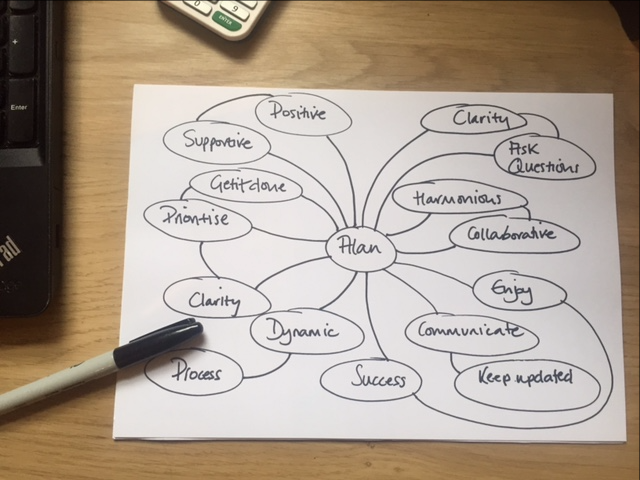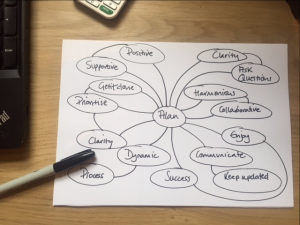
Functional teams work consistently towards outcomes and improved performance, whereas when you are in a low-functioning team it can sometimes feel like a war of attrition – which inevitably ends with the leader resorting to pulling rank to get stuff done.
Whilst the result might be compliance on behalf of the team member, it often doesn’t feel good and can leave a bad atmosphere in the team.
Further, its sets up both parties for a similar experience next time as they come to the table forewarned and forearmed and the pattern repeats.
Can you think of an example where you have experienced this, either as the leader or as the team member? Or have you observed this in the way that others are interacting?
How does it make you feel?
It is likely we all fall into this trap from time to time. I know that I recognise it in myself sometimes and I have to catch myself. You might not be surprised to learn that this is a really common problem in successful and busy organisations.
Here’s a typical scenario, taken from a real-life situation. There is a Manager, I’ll call her Jules and one of her team members, Lily. They were in the final preparations for an in-house event. Jules’ phone rang – it was the tech team. The venue representative was ‘being difficult’, could she come immediately. Under pressure, Jules said to Lily “When you have them all in the room, I want you to greet them by making an announcement. Tell them where to put their bags and tell them to turn off their phones. Oh, and make sure they are respectful of the speakers and listen!”
Lily immediately felt uncomfortable. It was minutes before the audience was to arrive. She had been expecting to register them, give them their badges and let them into the auditorium at 10am. She was not used to speaking to a group and she really didn’t want to do it. Jules picked up on her reluctance to do this, but she really didn’t have time for this. She said “Just do what I ask please.” And left to sort out the issue with the venue.
Lily was now anxious and annoyed with Jules. As people came in, Lily tried to be warm and friendly, she felt awkward giving the message about being respectful of the speakers, so just mentioned it to them individually as they arrived. She could see it wasn’t going down well. After the reaction of the first tranche of delegates, she stopped mentioning it.
At the interval, a few complained to Jules about Lily and asked what could possibly have made her think they wouldn’t be respectful. There were also mutterings over coffee that they were being treated like kids.
Jules was really cross. She found Lily back stage and said, “What did you say?! You’ve managed to upset half the room, Lily.”
I will leave the story there, but you get the point and where this story might lead.
Let’s circle back to the beginning of this EPIC Insight. What is the most important differentiator between functioning and non-functioning teams?
Pre-framing
In this case, Jules was under pressure. There was pressure of time, pressure of demands from different people. Pressure of expectations. In an attempt at brevity, Jules had fired off some instructions to Lily that didn’t make clear sense. Lily felt obliged, yet very uncomfortable. Consequently, the message was poorly delivered and badly received.
Pre-framing is a powerful tool. In this case, Jules might have said this:
“I am short on time, as I have to meet with the tech team. We have two important elements that I would like you to take ownership of so that we can maximise the success of this seminar. Firstly, we need to make it really easy for people get out and home at the end of the event, so to achieve that, can you find a way to store their bags for quick and easy access? Also, during the event, there will be some important messages throughout the speeches that they will need to remember over the next Qtr. Can you let them know? They might find it really useful to have a notebook and pen at the ready.”
When we pre-frame, we are giving the other person the heads up as to where we are going. The outcome we want to achieve or the goal we wish to reach.
Using pre-framing, Jules enables Lily to be honest and helpful to the audience and achieve the desired outcomes.
Practice
Practice getting into the habit of pre-framing. As you can see by Jules’ example, it often takes no longer – but makes a significant difference to the team’s ability to perform.





